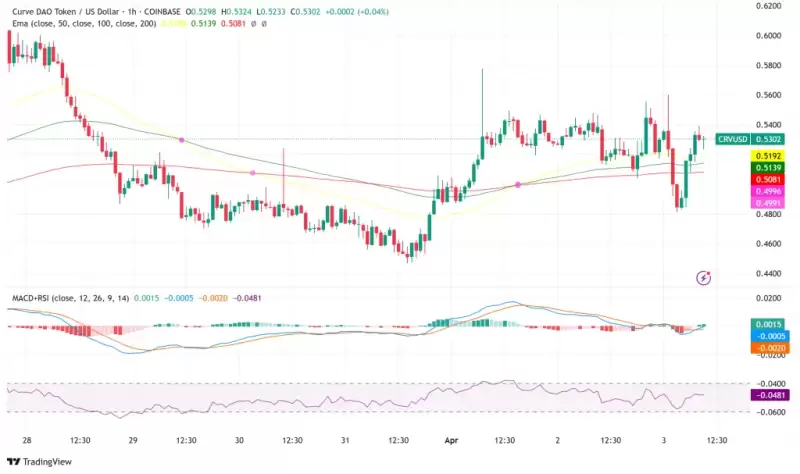 |
|
 |
|
 |
|
 |
|
 |
|
 |
|
 |
|
 |
|
 |
|
 |
|
 |
|
 |
|
 |
|
 |
|
 |
|
Cryptocurrency News Articles
Surveillance Capitalism: Unseen Tyranny Threatens Privacy in Digital Age
Apr 19, 2024 at 10:03 pm
Surveillance capitalism, a business model where tech companies harvest personal data for profit, has raised significant privacy concerns. In this model, user searches, likes, and even screen time become valuable data points collected, analyzed, and sold. Companies like Google and Facebook leverage vast data to build detailed user profiles, predicting and influencing decisions without explicit consent. Blockchain technology offers a potential solution by enabling decentralized and transparent transactions that limit the collection and monetization of personal data. Privacy-focused cryptocurrencies and innovative platforms like Brave challenge the traditional ad-based revenue model, compensating users for their attention rather than exploiting their data. While regulatory hurdles persist, the future of blockchain and crypto holds promising developments in addressing surveillance capitalism and enhancing user privacy.

Surveillance Capitalism: The Unseen Digital Tyranny Eroding Our Privacy
In the digital realm, a sinister force lurks, threatening our privacy and autonomy: surveillance capitalism. This insidious business model has transformed the online landscape, empowering tech giants to harvest our personal data and monetize it for profit, leaving us vulnerable to manipulation and exploitation.
What is Surveillance Capitalism?
Surveillance capitalism is a business model where companies accumulate, analyze, and sell personal data to predict and influence our behaviors, primarily for advertising purposes. Through our searches, clicks, likes, and even the time we spend staring at screens, companies amass vast troves of data that they utilize to build detailed profiles on each of us. These profiles are then exploited to tailor advertising campaigns and manipulate our decision-making, often without our explicit consent.
The Growth of Surveillance Capitalism
In the digital age, surveillance capitalism has flourished. The global digital advertising industry, heavily reliant on user data, is projected to reach $965 billion by 2028. This exponential growth has raised significant ethical and privacy concerns, with 81% of Americans expressing limited or no control over the data companies collect about them.
Surveillance Capitalism in Action: The Google and Facebook Cases
Google's pervasive presence in our digital lives grants it access to an unprecedented amount of user data. Its business model revolves around collecting detailed information from search history to YouTube preferences, which is then sold to advertisers for targeted campaigns. Similarly, Facebook leverages its deep integration into users' social lives to tailor advertisements, generating billions in revenue from advertising alone.
Egregious Examples of Surveillance Capitalism
The extent of surveillance capitalism's reach extends far beyond innocuous marketing practices. In 2023, a damning report revealed that the Meta Pixel tracking tool was embedded in many top hospital websites, collecting sensitive health information without patient consent. Another infamous example is the Cambridge Analytica scandal, where Facebook allowed the political consulting firm to harvest data from millions of users without their knowledge.
The Privacy Concerns
Surveillance capitalism raises grave concerns about individual privacy. Companies often fail to fully disclose the extent to which they collect and utilize our data. Moreover, the aggregation and analysis of personal data have far-reaching societal implications, influencing decisions on creditworthiness and job eligibility without transparent oversight or opportunities for individuals to contest inaccuracies.
The Erosion of Consent
Surveillance capitalism challenges the very notion of consent. Users are often forced to choose between using essential services and protecting their personal information. This undermines the autonomy and agency of individuals, placing them in a vulnerable position where their privacy can be compromised without their explicit agreement.
Crypto: A Potential Solution to Surveillance Capitalism?
Against this backdrop of privacy erosion, cryptocurrencies and blockchain technology emerge as promising alternatives. By design, crypto transactions do not inherently require personal information, enhancing user anonymity and reducing the risk of data exploitation. Moreover, blockchain ensures that personal data cannot be commoditized by third parties without user consent.
Blockchain-Based Solutions
Decentralized identities (DIDs) empower users to control their own digital identities, reducing the influence of central authorities and limiting the potential for data misuse. Additionally, cryptocurrencies like Monero and Zcash prioritize user privacy by masking transaction details, offering a level of anonymity that traditional financial systems cannot provide.
The Challenges of Crypto Adoption
Despite these advantages, crypto adoption faces challenges. Regulatory hurdles and varying global stances on cryptocurrency pose barriers to broader acceptance. Moreover, the scalability of blockchain technology needs to be addressed to meet the demands of global usage.
The Future of Surveillance Capitalism
The future of blockchain and crypto holds promising developments in combating surveillance capitalism. As more privacy-focused cryptocurrencies gain traction, the traditional data-exploitation models may be challenged. Blockchain-based projects could empower users to own and monetize their data, shifting the balance of power towards individuals.
Conclusion
Surveillance capitalism has insidiously transformed our digital world, eroding our privacy and autonomy. However, the rise of crypto and blockchain technology offers a glimmer of hope. Through decentralized identities, enhanced privacy protections, and the potential for data ownership, crypto can empower individuals to reclaim control over their personal information. As technology evolves and regulations adapt, we may finally witness a fairer and more secure digital landscape where our privacy is no longer a commodity to be exploited.
Disclaimer:info@kdj.com
The information provided is not trading advice. kdj.com does not assume any responsibility for any investments made based on the information provided in this article. Cryptocurrencies are highly volatile and it is highly recommended that you invest with caution after thorough research!
If you believe that the content used on this website infringes your copyright, please contact us immediately (info@kdj.com) and we will delete it promptly.
-

-

- Bitcoin (BTC) ETF Inflows Have Surged Again as Investors Ignore Trump's Reciprocal Tariffs
- Apr 03, 2025 at 02:45 pm
- Inflows into spot Bitcoin ETFs have surged once again as investors chose to look past the Trump reciprocal tariffs. The net inflows across all US ETFs for Bitcoin stood at $220 million
-

-

-

-

-

- How the 1995-S Kennedy Half Dollar Could Be Worth Over $6,000
- Apr 03, 2025 at 02:30 pm
- The 1995-S Kennedy Half Dollar might look like just another coin in your collection, but don't be too quick to dismiss it. This particular coin, especially the silver proof version, has gained significant attention in recent years.
-

-

- Bitcoin (BTC) price falls four per cent after Donald Trump imposes tariffs on trading partners worldwide
- Apr 03, 2025 at 02:25 pm
- Bitcoin as well as other major cryptocurrencies fell after US President Donald Trump imposed tariffs on trading partners worldwide, which triggered a slump in risky assets.



























































